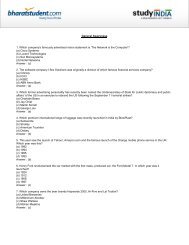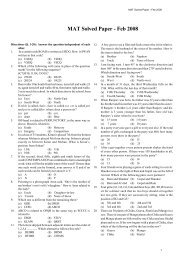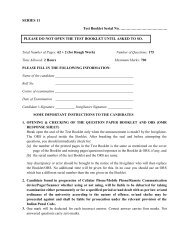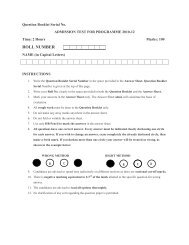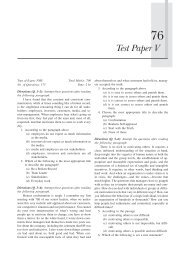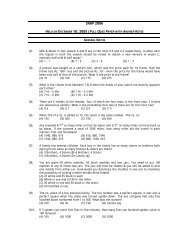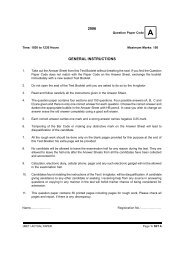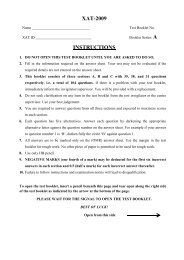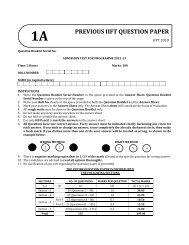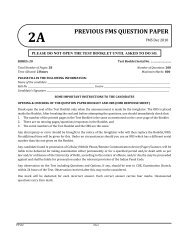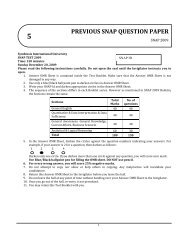You also want an ePaper? Increase the reach of your titles
YUMPU automatically turns print PDFs into web optimized ePapers that Google loves.
In contrast to these three sins of omission, the next four sins of misattribution, suggestibility,<br />
bias, and persistence are all sins of commission: some form of memory is present, but it is either<br />
incorrect or unwanted. The sin of misattribution involves assigning a memory to the wrong<br />
source: mistaking fantasy for reality, or incorrectly remembering that a friend told you a bit of<br />
trivia that you actually read about in a newspaper. Misattribution is far more common than<br />
people realize, and has potentially profound implications in legal settings. The related sin of<br />
suggestibility refers to memories that are implanted as a result of leading questions, comments,<br />
or suggestions when a person is trying to call up a past experience. Like misattribution,<br />
suggestibility is especially relevant to – and can sometimes create havoc <strong>with</strong>in – the legal<br />
system.<br />
The sin of bias reflects the powerful influences of our current knowledge and beliefs on how we<br />
remember our pasts. We often unknowingly or unconsciously edit or rewrite our previous<br />
experiences in light of what we now know or believe. The result can be a skewed rendering of a<br />
specific incident, or even an extended period of our lives, which says more about how we feel<br />
now than about what happened then.<br />
The seventh sin – persistence – entails repeated recall of disturbing information or events that we<br />
would prefer to banish from our minds altogether: remembering what we cannot forget, even<br />
though we wish that we could. Everyone is familiar <strong>with</strong> persistence to some degree: recall the<br />
last time that you suddenly awoke at 3:00 AM, unable to keep out of your mind a painful blunder<br />
on the job or a disappointing result on an important exam. In more extreme eases of serious<br />
depression or traumatic experience, persistence can be disabling and even life-threatening.<br />
Q.24 The above passage DOES NOT mention<br />
(A) impact of memory malfunctions on daily lives<br />
(B) reasons for memory malfunctions<br />
(C) relationship between seven memory sins and seven deadly sins<br />
(D) lapses and distortions of memory<br />
Solution:<br />
24. The answer is option (C). Though the author says that’ just like the ancient seven deadly sins,<br />
he does not delve in to the details of relationship between the two. All the other options are<br />
mentioned in the passage.<br />
Q.25 The above passage implies that<br />
(A) sins of commission are more serious memory malfunctions than sins of omission<br />
(B) the sin of bias arises as a result of misattribution<br />
(C) the sin of persistence most frequently occurs when we are asleep<br />
(D) sins of omission involve presence of memory in some form or other<br />
Solution:<br />
25. The answer is option (D). Though the author has not specifically given that the sins of<br />
omission involve presence of memory in some form or other, it is very clear from the passage<br />
that any sort of memory loss be it sins of omission or commission involves presence of memory




